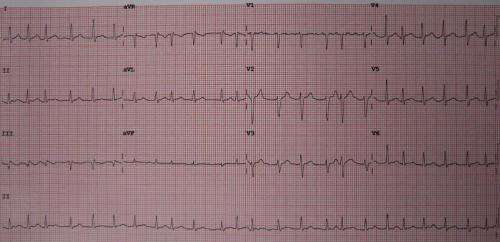
Cleveland Clinic researchers have found that cryoballoon ablation as the initial treatment for atrial fibrillation is more effective than current standard-of-care management using medications. The study was published today in the New England Journal of Medicine.
Atrial fibrillation is the most common type of heart rhythm disorder. The Centers for Disease Control and Prevention estimates it affects between 2.7 million and 6.1 million people in the United States. About 40 percent of patients with this condition have intermittent episodes of atrial fibrillation, called paroxysmal atrial fibrillation, which can eventually progress into persistent atrial fibrillation.
Patients with atrial fibrillation are five- to seven-times more likely to have a stroke than the general population. Atrial fibrillation also can lead to heart failure. Paroxysmal atrial fibrillation is typically first treated with anti-arrthythmic drugs; however, improvements in the safety and efficacy of ablation have led to increased interest in ablation as the initial therapy before using drugs. One of these ablation modalities is cryoballoon ablation in which the physician inserts a balloon filled with liquid nitrogen to freeze the heart tissue that is causing the irregular heartbeat.
The STOP AF FIRST trial studied 203 patients with paroxysmal atrial fibrillation, not previously treated with medications, over the course of a year at 24 sites across the U.S. The patients were randomized to receive cryoballoon catheter ablation or standard-of-care medications. At 12 months, 75 percent of the ablation patients were free from atrial fibrillation without additional treatment compared with 45 percent of the medication patients.
“Previous studies have shown success in using ablation early in atrial fibrillation patients, but this is the first to study ablation as the initial therapy early in the AF disease process and the results may signal a shift in how we think about treatment,” said Oussama Wazni, M.D., section head of electrophysiology and pacing at Cleveland Clinic and principal investigator of the study. “Earlier intervention with ablation may keep patients free from atrial fibrillation longer and prevent the disease from progressing into more persistent atrial fibrillation.”
Source: Read Full Article
